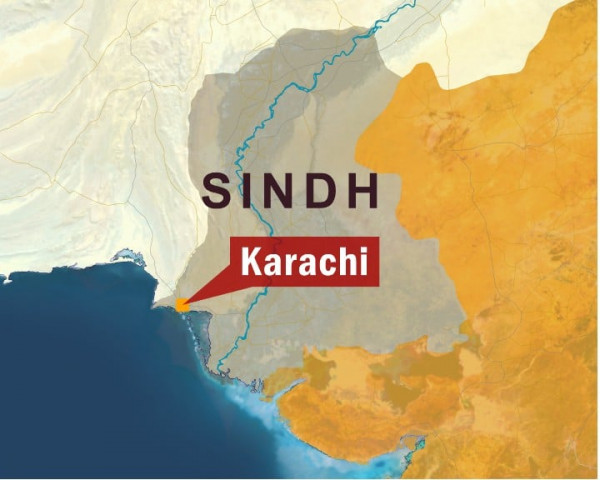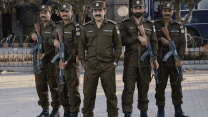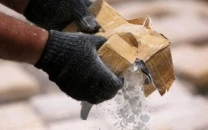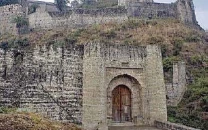TEDx: what Pakistan needs now is this

TED is a US-based non-profit organisation that holds conferences across the world showcasing experts. TEDx is designed to give communities the opportunity to inspire and share at independently organised events.
“What Pakistan needs is little inspiration, imagination and interconnection with the rest of the world to explore new avenues,” said Chris Anderson curator of the TED conferences.
The speakers on Friday included:
Asad Umar
Cool people like to talk about cool stuff, but Umar’s topic of discussion was coal - that was not so cool. The audience burst into fits of giggles and applauded his sense of humour and honesty. Umar is the CEO of Engro Corp and a graduate of the Institute of Business Administration.
Pakistan needs to get out of its energy crisis and needs to tap its coal reserves to do this. “Many other countries have already adopted this technology, like China and India,” he said, adding that Pakistan has reserves that outstrip those of Saudia Arabia and Iran’s oil reserves. “We are spending so much on the energy import bill and we cannot afford to do this in the times to come.”
The biggest investment so far in the energy sector has been the Hubco project that was set up with 1.25 billion dollars. However, the Thar coal project is twice that number. “People ask me, do you think it is going to happen? That energy will be available from our own natural resoiurces such as coal? I tell them, honestly I don’t know myself. If we fail, we will not have tried hard enough,” he remarked.
Monis Rahman
Rahman is the chairman and CEO of Naseeb Networks that provides recruitment, social networking, classifieds and related services in Pakistan. He is also involved in The Indus Entrepreneurs, which is the world’s largest not-for-profit organisation of entrepreneurs.
In his talk, he stressed the need for innovation. Fearless entrepreneurship, innovation and infectious belief are the things that will help us turn around the negatives into positives.
Roshaneh Zafar
Zafar is the founder and the managing director of Kashf Foundation that works on empowering women through micro finance. “We talk about problems in Pakistan about its various things but have we ever looked at it from the positive angles? The good things it has?” she said. “Today we have everything from effective telecommunication systems, an independent judiciary, resources, freedom and the right to expression.” Zafar has been inspired by Dr Muhammed Yunus. “Nelson Mendala said that civilisations and nations have to go though endurance,” she said. She also gave the examples of role models such as Sattar Edhi, Nelson Mandela, Bill Gates. “It was an honour that the governor of the State Bank, Dr Shamshad Akhtar, awarded us the license,” she said. “People asked me how I would manage to launch loans for women through women officers. I said innovation and belief were the answer.” She once met Dr Yunus at a conference and he told her that if you wait for the ideal world to happen you will never be able to bring about change. She concluded her talk by singing the national anthem.
Asad Rezzvi
Rezzvi is the CEO of E Cube Global that trains organisations. He has trained with inspirational gurus the likes of Anthony Robinson. Rezzvi decided to share an experience he faced after 9/11 in the US. The Robbins-Madanes Centre for Strategic Intervention in San Diego has produced a documentary featuring Rezzvi, shot live on the day of 9/11. This was show on CNN’s Larry King Live during a discussion on Muslims and terrorism. There was an audience of around 2,500 people with only 15 Muslims and 66 family members of the victims of 9/11. “I changed their minds half way through the discussion. A few people tried to attack me in the begining,” said Rezzvi, explaining how he defended Muslims.
Joshinder Chaggar
Chaggar, who moved to Karachi in 2007, is a Bharatnatyam performer who produced the first ever contemporary dance drama in the city, ‘Conversations’. For TED, her troupe gave a small performance from the set in colourful masks by Beenish Pervez. “Pakistan needs more creative outlets - freely and without judgement,” she said. “There is much more beyond and a lot to be explored and people welcome this change.”
Jacqueline Novogratz
Novogratz is the found of Acumen Fund that deals in global poverty. She described how she came to Pakistan and what challenges she faced. “In early 2002, I came to Pakistan at the time of Daniel Pearl’s beheading. I did not know how I would start. Initially I faced a harsh response from people like Tasneem Siddiqi but later people showed support and welcomed me as I was here for a cause. Siddiqi said I should first go to the people.” She gave the example of Khuda ki Basti. She showed an image of a mosque in community housing where worshippers of different sects came together. All of them have agreed to offer their prayers at the same mosque with imams leading the prayers on different fixed days. “What Pakistan needs is what the world needs. Earned love, a focus on dignity and mutual cooperation.”
Published in the Express Tribune, June 5th, 2010.



















COMMENTS
Comments are moderated and generally will be posted if they are on-topic and not abusive.
For more information, please see our Comments FAQ